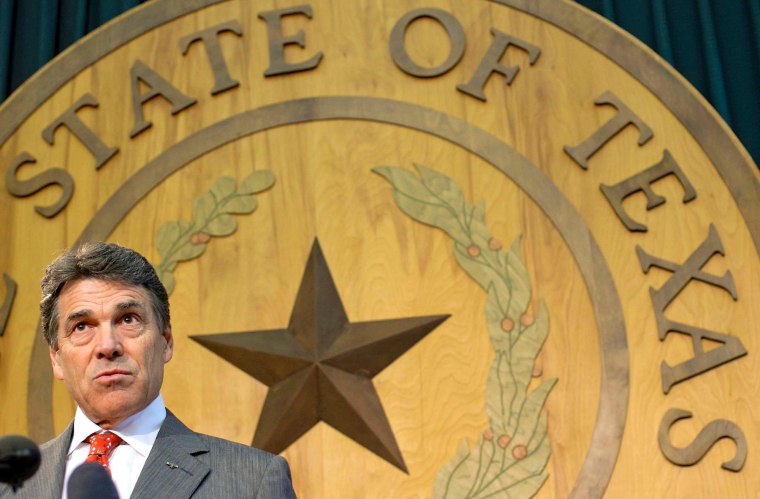If there was a contest to see which Republican lawmaker can most obstruct the vote -- and given the way they're going about it, you'd think at least a case of Bud was riding on this -- I'd have thought that the leader in the clubhouse was named Rick Scott, or Tom Corbett, or maybe even Nikki Haley. The latter, governor of South Carolina, was more than happy to use her Republican National Convention speech to talk about why voter-ID laws are not only necessary, but a good thing:
We said in South Carolina that if you have to show a picture ID to buy Sudafed and you have to show a picture ID to set foot on an airplane, then you should have to show a picture ID to protect one of the most valuable, most central, most sacred rights we are blessed with in America - the right to vote.
If I'm to believe Haley, buying Sudafed and boarding a flight are equivalent to Constitutional rights. That will be news to the TSA, and my pharmacist. This is not a new defense of her state's voter-ID law, but it's a curious one given that the law is currently dead.
Haley and the state are trying to resurrect their law in federal court, after it was struck down late last year due to concerns that it discriminated against black voters. In fact, part of the testimony this week, per McClatchy Newspapers, involved the author of the law admitting that he had responded favorably to a friend's racist email in support of the measure.
Racial bias was also the reason why courts interceded on efforts to restrict voting rights in Governor Rick Perry's Texas this week. First, a three-judge panel in a federal court ruled that the redistricting plan Perry signed discriminates against Latino voters. Ari Berman of The Nation, in his report, teased the fact that Texas' voter-ID law was also under the scrutiny of the Justice Department.
Perry lost on that, too, earlier today, when another three-judge panel (he is having bad luck with those this week) rejected that voter-ID law:
A three-judge U.S. District Court panel ruled that that SB 14, described as the most stringent voter ID law in the country, imposes "strict, unforgiving burdens on the poor" and noted that racial minorities in Texas are more likely to live in poverty.
Berman highlighted what he called the key section of the ruling. Emphasis mine:
Texas bears the burden of proving that nothing in SB 14 “would lead to a retrogression in the position of racial minorities with respect to their effective exercise of the electoral franchise.” Because all of Texas’s evidence on retrogression is some combination of invalid, irrelevant, and unreliable, we have little trouble concluding that Texas has failed to carry its burden.To the contrary, record evidence suggests that SB 14, if implemented, would in fact have a retrogressive effect on Hispanic and African American voters. This conclusion flows from three basic facts: (1) a substantial subgroup of Texas voters, many of whom are African American or Hispanic, lack photo ID; (2) the burdens associated with obtaining ID will weigh most heavily on the poor; and (3) racial minorities in Texas are disproportionately likely to live in poverty.
So while the leader in the voter-suppression clubhouse may have been Perry earlier this week, he's back down to zero. So may be Governor Scott of Florida, whose voter-registration purge was halted by a federal judge pledging to end it permanently. That said, he's brought Democratic registration in Florida to a comparative standstill, so perhaps the jury's still out, no pun intended.
With Haley also taking an L currently, perhaps we'll consider Corbett the leader at the moment, since Pennsylvania's voter-ID law got the green light from courts about two weeks ago, and remains for now alive and well. (At least nonagenarian protester Vivette Applewhite has her ID now.)
We'll see what happens. As in a pennant race, it looks like things may actually be changing by the day.
Below, you'll find tonight's "NBC Nightly News" report about the Texas voter-ID law news.
